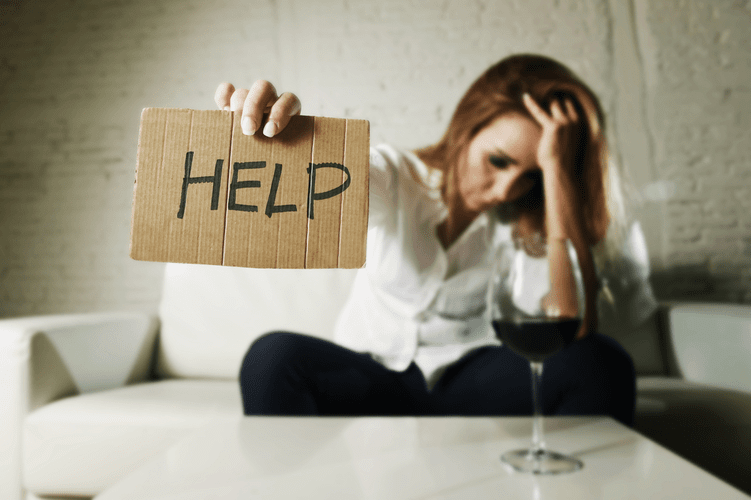Early work in this area from the Project MATCH sample revealed an intriguing interaction (Thevos et al. 2000). Specifically, whereas socially phobic men benefitted equally well from either cognitive–behavioral therapy (CBT) or 12-step facilitation (TSF), women with social phobia fared less well if they were assigned to TSF. To shed light on the potential role of social anxiety in addiction treatment, Book and colleagues (2009) compared participants in an intensive outpatient program with high and low social does drinking make your depression worse anxiety on attitudes toward treatment activities. Members of the group with high social anxiety, who predominantly were female (71 percent), overall showed less treatment participation than did members of the comparison group.

Health Conditions
Prolonged alcohol use often leads to substance abuse, which negatively affects your brain’s ability to regulate emotions. Over time, this can exacerbate feelings of anxiety Substance abuse and depression, creating a vicious cycle that’s hard to break. Recent “big data” modeling approaches have advanced the understanding of epidemiological data related to the association between anxiety disorder subtypes and risk for alcohol misuse. Alcohol interferes with the brain’s communication pathways, affecting the way the brain functions.
Article Menu
Withdrawal symptoms, cravings, and social pressures can make recovery feel overwhelming. This is why addressing both mental health and addiction together is so important. Exercise and diet are important for both physical and emotional health.

Psychiatric Disorder Classifications and Diagnoses
Alcohol’s sedative effect is misleading, often resulting in a rebound effect that increases anxiety and stress. This can trap you in a harmful cycle, making it hard to manage symptoms without drinking more. Understanding these impacts is crucial for finding healthier coping mechanisms and achieving lasting relief. Several clinical trials have examined the effect of supplementing standard AUD treatment with a validated treatment for anxiety or mood disorders among individuals with both conditions.
- There was documented followup at home for each participant by the community-based health worker (CBHW) twice a week, and the principal researcher (P.I) or assistant (once a week) at Kangemi Heath Centre for a period of 6 months.
- Finally, neurobiological research on the relationship between negative affect and alcohol use is reviewed, and the opponent process model is explained.
- Moreover, chronic alcohol use can alter your brain’s chemistry, making it harder for you to manage stress and anxiety without relying on alcohol.
The psychiatric, psychological, and neuroscientific disciplines have developed theories to explain the association between alcohol and anxiety disorders. Each discipline has independently contributed to the understanding of how to best describe and treat alcohol use disorder (AUD) in the context of negative affectivity. However, very little cross-communication has occurred among these disciplines. This insularity and particularism continue to impose significant opportunity costs in this field. To determine whether the course of depressive and/or anxiety disorders is conditional on the type (abuse or dependence) or severity of comorbid alcohol use disorders. Perhaps most importantly, once the complete assessment data have been gathered through all the available strategies, the full spectrum of information should be integrated and considered as a whole to yield the most accurate diagnosis.
If you’re feeling at all overwhelmed and don’t know where to find a support community, we have a private Soberish Facebook group ready to receive you. Treatment for depression coupled with sobriety and healthy lifestyle changes such as improved diet and exercise will help you get to the good parts of sobriety. It’s the brain’s reaction to the constant flood of dopamine from alcohol.
- Your body can have an uncomfortable sensation the next day as a result, which can feel like a nervous energy or anxiety.
- You might notice certain times of the day or being around certain people will make you feel more anxious or more depressed and want to drink more.
- People with AUD may also experience alcohol withdrawal, which can involve physical symptoms of anxiety, such as rapid heartbeat, nausea, and shaking.
- Half Day (IOP) provide intensive care and support to help individuals develop sobriety skills.
- Breaking free from alcohol addiction requires professional support, particularly when managing withdrawal symptoms alongside mental health challenges.

Practitioners can counteract their patients’ depressive symptoms by providing education and counseling as well as by reassuring the patients of the high likelihood that they will recover from their depressions. Similarly, an alcoholic who experiences repeated panic attacks or other anxiety symptoms requires intervention for the anxiety, regardless of the cause. Alcoholics who experience high levels of anxiety or nervousness, including panic attacks, will likely benefit from education and reassurance as well as from behavioral therapies aimed at increasing levels of relaxation. It is, therefore, not surprising that more than one out of every three alcoholics has experienced episodes of intense depression and/or severe anxiety (Cox et al. 1990; Wilson 1988). These psychological conditions are often intense enough to interfere with life functioning, and the symptoms are often recognized by physicians and other health care providers as serious enough to require treatment.
With fewer dopamine receptors in the brain, it becomes significantly more difficult to experience pleasure or joy. Alcohol artificially elevates dopamine levels in your brain in a big way. When we drink, the reward system in the brain gets switched on, and we start to feel amazing. That’s why your doctor or psychologist will work with you to create a treatment approach that addresses both issues. Alcoholics anonymous (AA) and alcohol treatment centers offer classes and support group meetings. It helps people understand events and thought processes that lead to depression and substance misuse.


